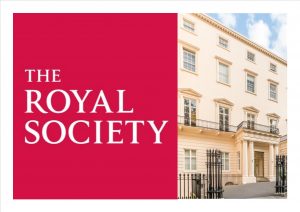 If you would like to take the opportunity of online impact training as it relates to the UKRI Case for Support or writing the impact sections of Horizon 2020 proposals, Professor Mark Reed of Fast Track Impact is offering free, interactive webinars, giving you access to his most popular training sessions. Due to a high level of interest, there are now a further 100 tickets available for each of the two courses below:
If you would like to take the opportunity of online impact training as it relates to the UKRI Case for Support or writing the impact sections of Horizon 2020 proposals, Professor Mark Reed of Fast Track Impact is offering free, interactive webinars, giving you access to his most popular training sessions. Due to a high level of interest, there are now a further 100 tickets available for each of the two courses below:
How to integrate impact into your UKRI Case for Support
A highly interactive opportunity to learn about research impact and discuss example proposals integrating impact into their Case for Support
14.00-15.00, UK time (BST), Wednesday 15th April 2020
- Learn exactly what impact is (and is not) based on evidence from The Research Impact Handbook
- Discuss two contrasting examples of applied research proposals that have integrated impact into their case for support, identifying which of the two is best and why (using the break-out room function in Zoom), and report back key features of good practice to the wider group
- Get a masterclass in integrating impact to bids from Professor Reed
- Get the option to join free follow-up training to learn more about impact via email over the next 5 weeks
- Get a free PDF copy of Prof Mark Reed’s book, The Research Impact Handbook (second edition), and access to a video recording of the whole session (exclusive to those attending the webinar)
- Access is on a first-come-first served basis, with up to 100 spaces available. Book now to avoid disappointment.
How to write the impact sections of a Horizon 2020 proposal
A highly interactive opportunity to learn about research impact and discuss impact sections of funded and rejected Horizon 2020 proposals
15.00-16.00, Central European Time (CET), Friday 3rd April 2020
- Learn exactly what impact is (and is not) based on evidence from The Research Impact Handbook
- Discuss two Horizon 2020 proposals (impact sections only) in small groups (using the break-out room function in Zoom), identifying key features of good practice to work out which one was funded
- Get a masterclass in writing the impact sections of a Horizon 2020 bid by Professor Reed
- Get the option to join free follow-up training to help you embed what you’ve learned via email over the next 5 weeks
- Get a free PDF copy of Prof Mark Reed’s book, The Research Impact Handbook (second edition), and access to a video recording of the whole session (exclusive to those attending the webinar)
- Access is on a first-come-first served basis, with up to 100 spaces available. to avoid disappointment.



















 Beyond Academia: Exploring Career Options for Early Career Researchers – Online Workshop
Beyond Academia: Exploring Career Options for Early Career Researchers – Online Workshop UKCGE Recognised Research Supervision Programme: Deadline Approaching
UKCGE Recognised Research Supervision Programme: Deadline Approaching SPROUT: From Sustainable Research to Sustainable Research Lives
SPROUT: From Sustainable Research to Sustainable Research Lives BRIAN upgrade and new look
BRIAN upgrade and new look Seeing the fruits of your labour in Bangladesh
Seeing the fruits of your labour in Bangladesh ECR Funding Open Call: Research Culture & Community Grant – Apply now
ECR Funding Open Call: Research Culture & Community Grant – Apply now ECR Funding Open Call: Research Culture & Community Grant – Application Deadline Friday 12 December
ECR Funding Open Call: Research Culture & Community Grant – Application Deadline Friday 12 December MSCA Postdoctoral Fellowships 2025 Call
MSCA Postdoctoral Fellowships 2025 Call ERC Advanced Grant 2025 Webinar
ERC Advanced Grant 2025 Webinar Update on UKRO services
Update on UKRO services European research project exploring use of ‘virtual twins’ to better manage metabolic associated fatty liver disease
European research project exploring use of ‘virtual twins’ to better manage metabolic associated fatty liver disease